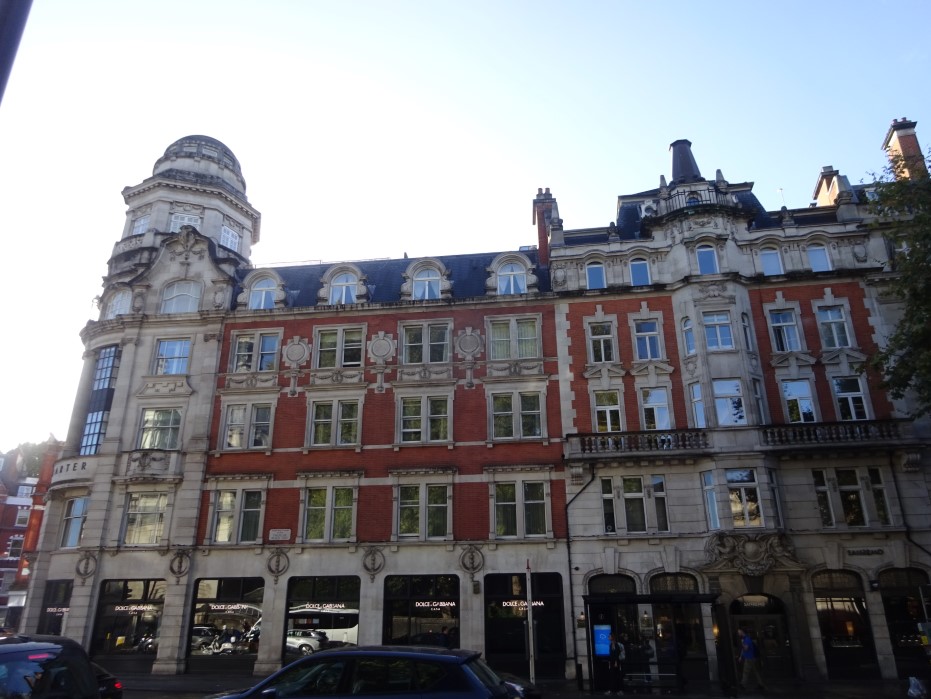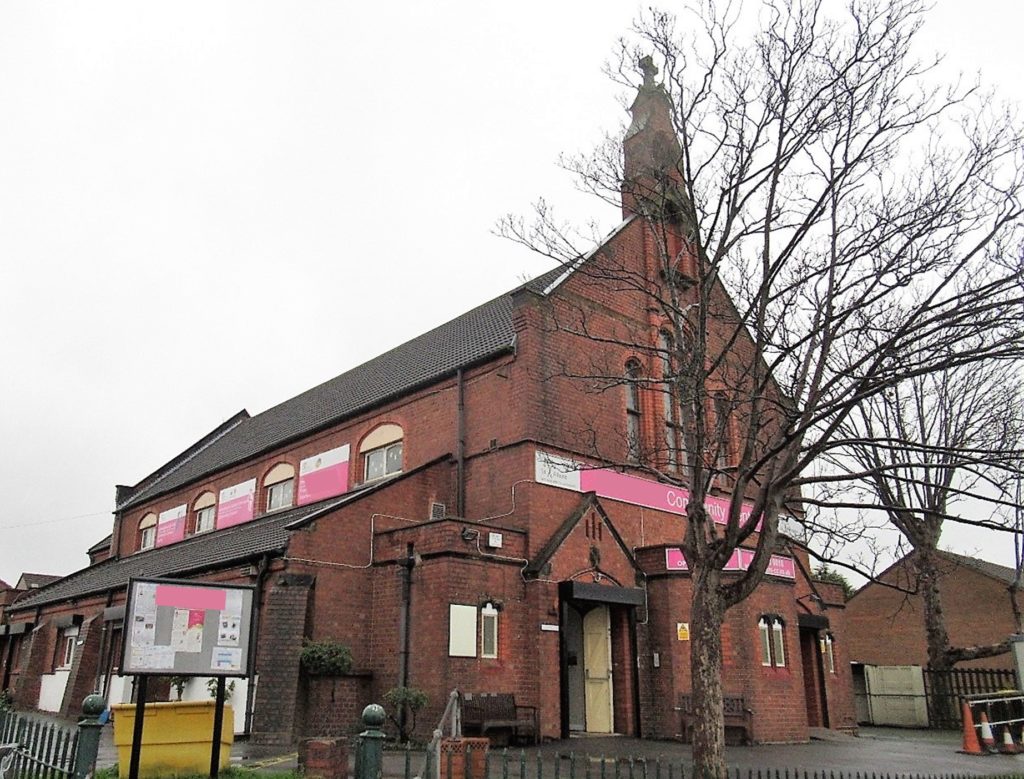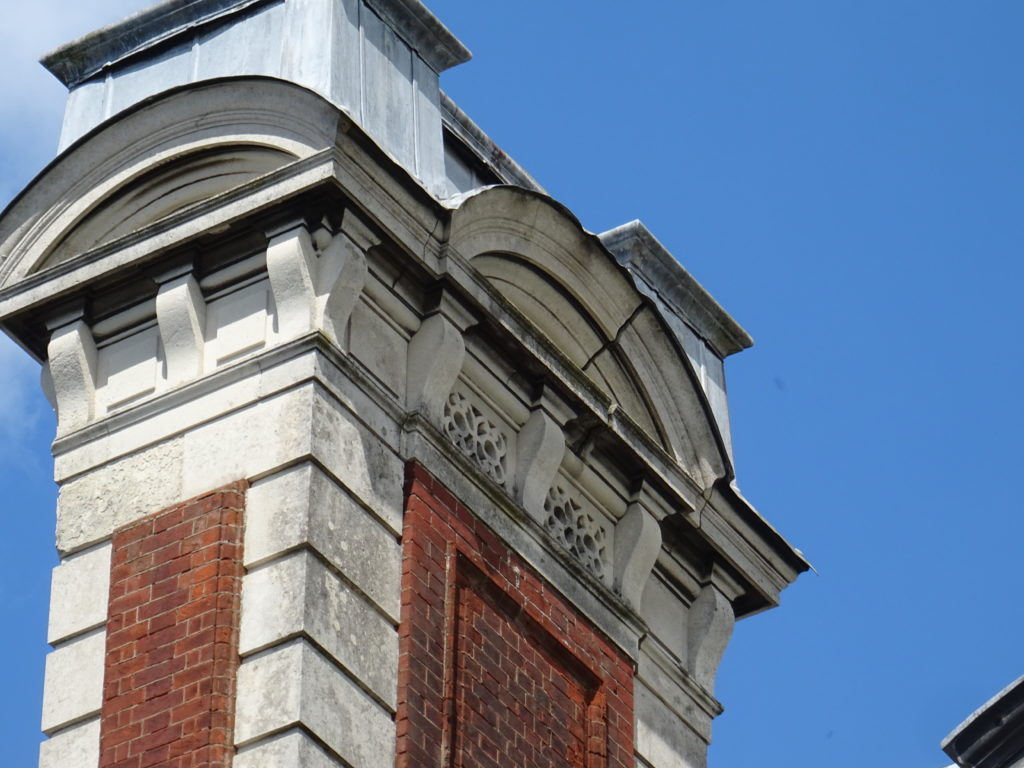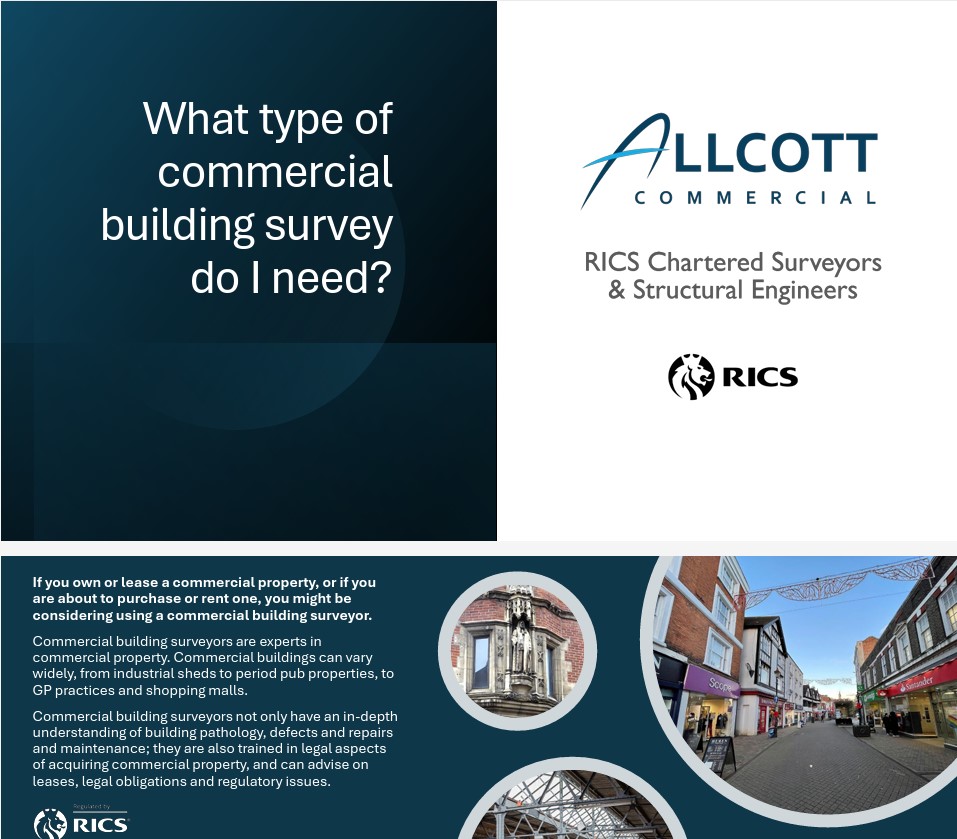Planned Preventative Maintenance (PPM) Surveys
RICS Planned Preventative Maintenance Schedules from Chartered Surveyors provide long term building maintenance plans. They illustrate costs for anticipated works over the coming years, meaning your business can budget and prepare.
A PPM survey from Allcott Commercial: what to expect
Following our condition surveys, we are often asked to prepare PPM schedules. We assess the current state of the property and the works and maintenance that will be required both now and in the future, and use this information to put together a schedule of works. The works listed are categorised by urgency and priority, and budgets and timescales are assigned to each item.
The PPM report includes an introductory section that describes the building and summarises the building’s condition. Each element of the property is then summarised, alongside the surveyor’s conclusions on the condition of the element. Any items of concern are flagged.
The main body of the report is an annual maintenance plan, in the form of an excel document. This document contains a breakdown of all the individual elements of the building. Each element will be described in terms of its condition, and any repair or remedial works that are required; the urgency of works and a budget figure for each element are also included.
A PPM Schedule will list out all the major items of work anticipated within a set period (often the next 10–15 years).

Our Planned Preventative Maintenance (PPM) Surveys will identify major items of work anticipated within a set period. This is often the next 5, 10 or 20 years, but can be over different timescales.

A PPM allows you to budget for expenditure on repairs and maintenance over the coming years. Our experts can suggest schedules of work that will spread costs over the entire period of the PPM, to aid budgeting.

Our output is tailored to each client’s needs. We can provide detailed condition reports with precise costs when required, and approximate estimates where that approach is more appropriate.

Our PPMs are carried out in line with the new RICS guidance note “Planned Preventative Maintenance of Commercial and Residential Property” (February 2022). Furthermore, we are an RICS regulated practice.
Why have a Planned Preventative Maintenance Schedule?
Understanding the maintenance that will be required to keep your property in a good state of repair has many advantages.
Firstly, it allows you to prioritise work, meaning you can focus on anything that could become dangerous, and anything that affects the structural integrity and everyday use of the building first. Works that will prevent the need for more costly repairs further down the line will also be prioritised. Our surveyors understand budget limitations, and can advise on how to spread costs across several years by strategically scheduling works at appropriate times.
A PPM will also save money in the long term. It allows you to extend the lifespan of your building and prevent expensive, unexpected repair works. By proactively fixing issues, long-term damage can be prevented. For example, repointing perished mortar stops water ingress and significant damage from a build-up of damp; similarly, protecting and regularly inspecting mildly corroded steelwork can prevent major structural issues.
Thirdly, our surveyors consider more than the fabric and structure of the property. They also have expertise in health and safety regulations, fire regulations and building regulations. Their advice will include measures to bring properties in line with current guidance, improving the usability and safety of the building and optimising the property’s value over the years.
Want to know more?
Should I have a PPM Schedule or a Building Survey?
Building Surveys and PPM Schedules both involve a surveyor visiting the property, assessing the condition and structure and providing advice on the repairs and maintenance required. So what is the difference between a building survey and a PPM survey, and which is right for you?
If you are purchasing or leasing a building and you want an insight into the state of the property, and the major works that will be required, a building survey is for you. This will allow you to decide if the purchase or lease price is appropriate for the property, and whether you need to set aside funds to get the building up to the standard you require. It will also highlight any dangers or hazards present, and any legal documents (e.g. building regulations approvals) that your solicitor should be obtaining.
PPMs are normally requested by owners or managers of a property or a series of properties. A PPM will itemise each task – big or small – that needs to be completed to keep the building in a good state of repair over a set period of time (often 5–10 years). Each item is costed, graded according to severity and urgency, and split according the year the works need to be carried out. These are particulary useful for large estates and series of property stock; for example, retail firms with units across the country, or housing associations with numerous properties.
PPM Surveys: Case studies
Our team regularly carries out condition surveys on a range of commercial properties, from listed educational buildings to retail premises and places of worship.
Brief: Our client requested a stock condition survey series and planned preventative maintenance (PPM) schedule spanning 10 years for their central London estate.
Properties: Over 80 properties, including listed buildings.
Client: Senior Facilities Manager at the estate.

Brief: Conduct a thorough building survey of a community centre building and provide a PPM schedule covering the next 10 years.
Property: Community centre in the Birmingham area.
Instructed by: Community association executive officer.

Brief: Prepare a planned maintenance schedule spanning the next 10 years.
Property: School buildings dating back to the 1600s, and a modern teaching block.
Instructed by: Head.

Allcott Commercial’s surveying services
Our team at Allcott Commercial can talk you through your options and help you decide what type of survey is right for you
We also have several example reports available, which will provide an overview of what to expect from your survey.
Sometimes services allied to building surveying are required:
- Expert witness if you are involved in a building dispute.
- Commercial valuations if you require a Red Book RICS valuation of commercial assets.
- Structural engineering assessment or calculations if structural designs or calculations are required.
Contact us today on 0333 202 6386 or info@allcottcommercial.co.uk, to find out more about how we can support you with your commercial property.
We're here to help
If you would like to discuss a potential project with our consultants or get advice on any aspect of building surveying or engineering, please don’t hesitate to complete our contact form, call us on 0333 202 6386, or contact one of our regional offices.



